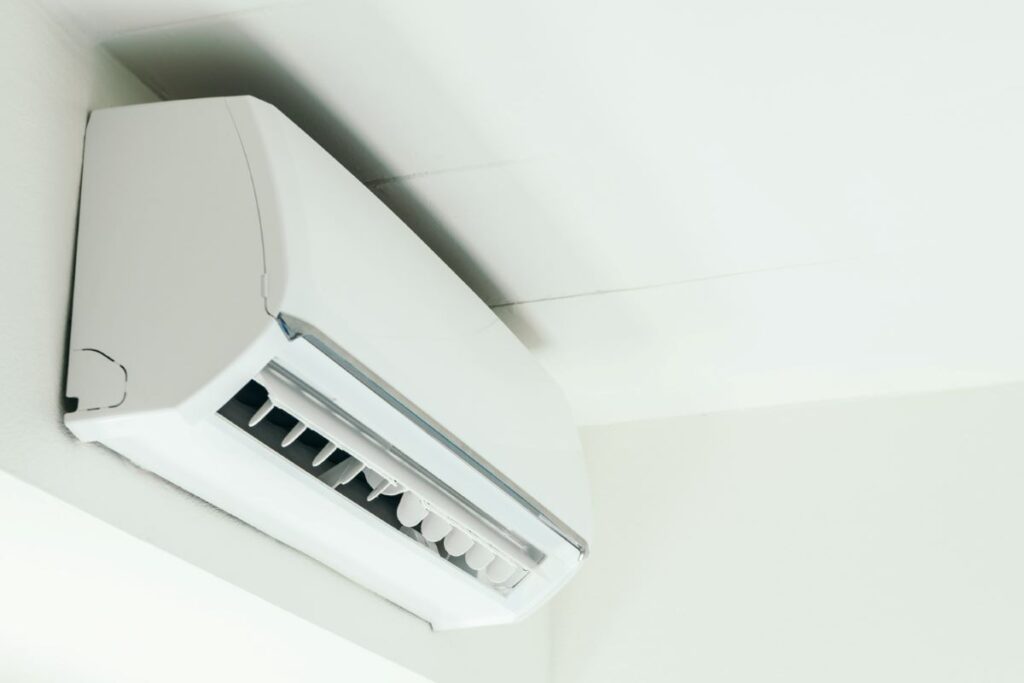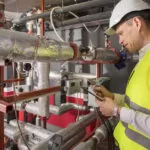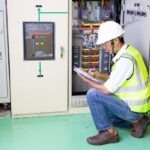As a building owner in the diverse and dynamic climate of Texas, choosing the right HVAC (Heating, Ventilation, and Air Conditioning) system is crucial for maintaining a comfortable indoor environment. One popular and efficient option worth exploring is the split system. In this article, Qusrawi Mechanical Engineers will delve into the details of split systems, shedding light on their components, advantages, and considerations for Texas property owners.
Table of Contents
Understanding the Basics of Split System HVAC:
A split system HVAC consists of two main components: an indoor unit and an outdoor unit. The indoor unit, often referred to as the evaporator or air handler, is typically installed inside the building, either on the wall or ceiling. The outdoor unit, known as the condenser, is positioned outside the building. These two components work in tandem to provide both heating and cooling functionalities.

The indoor unit contains the evaporator coil, which is responsible for cooling the air. In the cooling mode, warm air from inside the building is drawn over the coil, where it is cooled and then circulated back into the indoor space. On the other hand, during the heating mode, the system extracts heat from the outdoor air and transfers it indoors.
Advantages of Split System HVAC:
One of the primary advantages of split systems lies in their versatility and efficiency. These systems are suitable for a wide range of building types and sizes, making them a popular choice for both residential and commercial properties in Texas. The flexibility in installation, with the indoor and outdoor units connected by refrigerant lines, allows for customization based on the layout and needs of the building.
Another notable advantage is the ability to control each indoor unit independently. This zonal control allows for personalized temperature settings in different areas of the building, optimizing comfort and energy efficiency. In a state like Texas, where the climate can vary significantly, this flexibility is particularly beneficial.
Considerations for Texas Property Owners:
While split system HVAC offers various benefits, there are essential considerations for Texas property owners to keep in mind. One significant factor is the system’s efficiency in handling the intense heat of Texas summers. Ensuring that the system’s capacity aligns with the cooling demands of your property is crucial for maintaining comfort during peak temperatures.
Additionally, installation location is key, especially for the outdoor unit. Texas experiences occasional severe weather conditions, including hailstorms and hurricanes. Placing the outdoor unit in a protected area or investing in protective measures can safeguard the system from potential damage, ensuring its longevity and reliability.
Maintenance and Longevity:
Proper maintenance is essential for ensuring the longevity and efficiency of split system HVAC. Regularly cleaning or replacing air filters, checking refrigerant levels, and scheduling professional inspections contribute to the system’s optimal performance. Texas property owners should be proactive in maintenance, especially considering the potential impact of dust storms and high pollen levels on system components.
Regular maintenance not only extends the lifespan of the system but also enhances its energy efficiency. In a state where energy consumption can spike during extreme weather conditions, an efficiently operating HVAC system becomes a strategic investment for both comfort and cost savings.
Evaluating Costs and Return on Investment:
Understanding the costs associated with installing and operating a split system HVAC is a crucial aspect for Texas property owners. While split systems are generally cost-effective compared to more complex HVAC systems, the initial investment can vary based on factors such as the size of the property and the number of indoor units required.
Considering the long-term benefits, including energy savings and improved comfort, can help property owners assess the return on investment. In Texas, where energy costs can be a significant part of the operational budget, an energy-efficient HVAC system becomes a valuable asset that pays off over time.
Conclusion:
In conclusion, as a building owner in Texas, exploring the details of split system HVAC is a prudent step toward making informed decisions about your property’s comfort and efficiency. Understanding the components, advantages, and considerations of split systems allows you to tailor your HVAC solution to the unique needs of the Texas climate.
The adaptability, efficiency, and zonal control offered by split systems make them a viable choice for various properties in Texas. However, careful consideration of factors such as installation location, system capacity, and ongoing maintenance is essential for maximizing the benefits of this HVAC solution. By investing in a well-suited split system and prioritizing regular maintenance, you contribute to the long-term comfort, efficiency, and sustainability of your Texas property.




